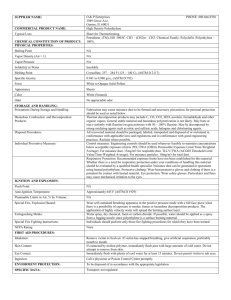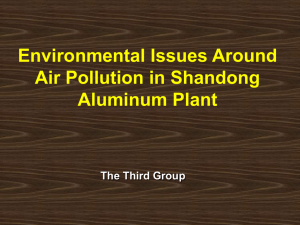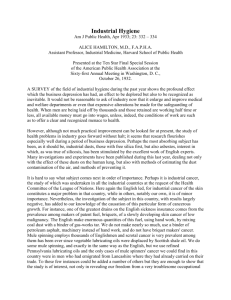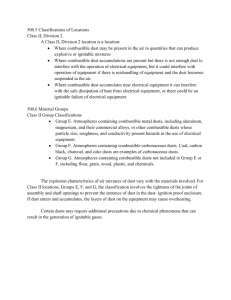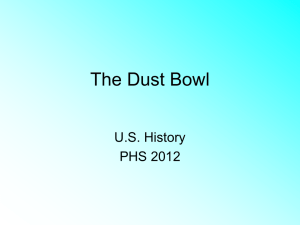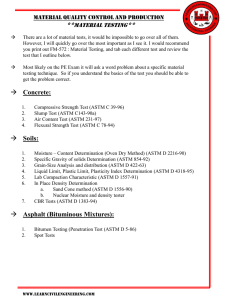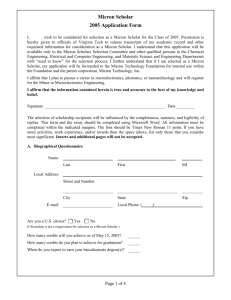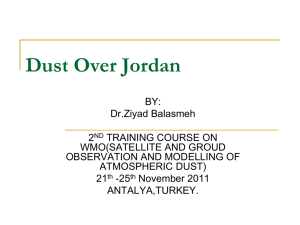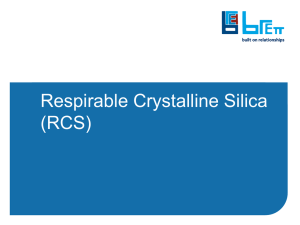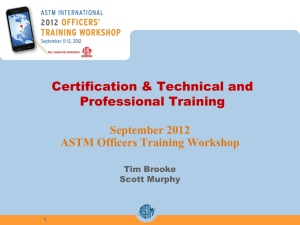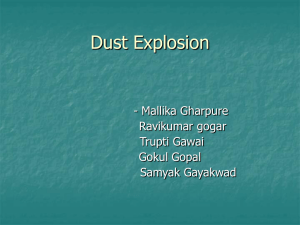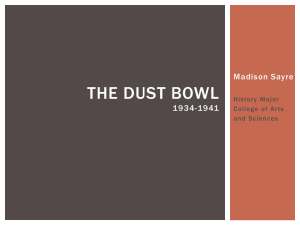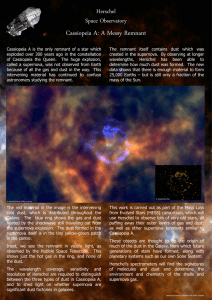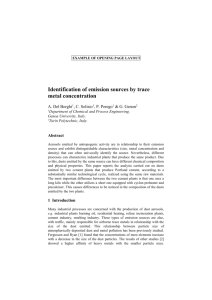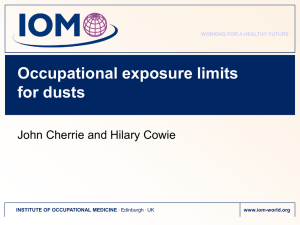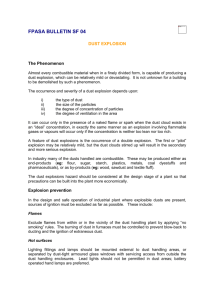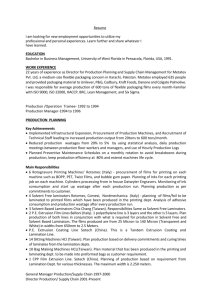Fallout Monitoring Requirements
advertisement
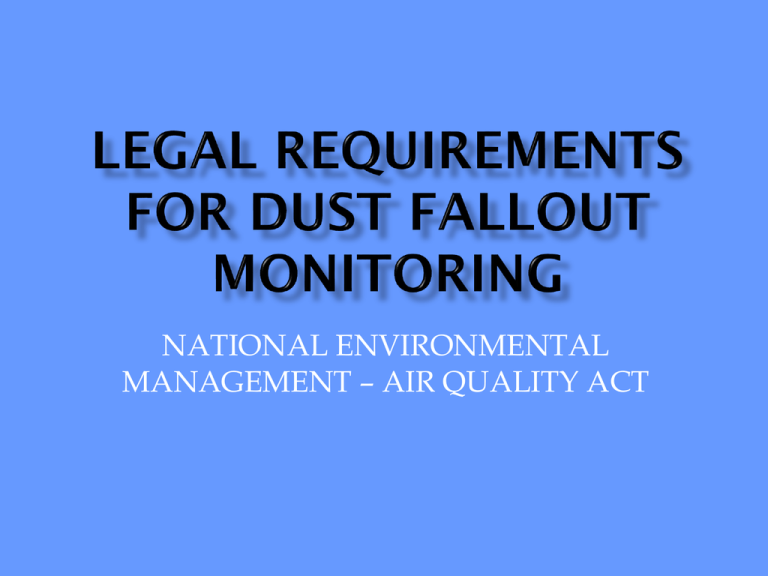
NATIONAL ENVIRONMENTAL MANAGEMENT – AIR QUALITY ACT These have been promulgated in response to the requirements of the act and lay out measures that need to be followed by any monitoring programme. The regulations outline a standard which should be used, but any accepted International standard is also permitted. The regulations also lay out conditions under which monitoring is required and a reporting requirement. The regulations also call for the ASTM 1739d1970 test method to be used although there is total confusion why later versions are not called for as these differ totally in concept. The regulations apply arbitrary changes to the ASTM method which have not been researched or applicable to accepted practise elsewhere. The ASTM also indicates that the system is “...Non-specific and not accurate enough for purposes other than indicating trends.’’ We already note that there is an accuracy warning about the ASTM unit and an inferior result cannot be used for regulation compliance in terms of the constitution and guilt can only be determined by accuracy in the proof. For the time being any monitor unit use will be acceptable. Only later versions of the ASTM call for wind guard units and not the 1970 version. As the regulation makes no distinction between your dust and that from elsewhere you are blamed for all the dust at you monitor, by assumption, which is also incorrect. Ambient dusts from all over forms part of the dust at your property and not only yours. By analysing the dust, you have a case against high levels which are likely to be loaded in many situations and can defend yourself. With any single sample monitor you will need to do a content analysis if you are to defend yourself. With a multidirectional monitor the results speak for themselves and analysis is not absolutely necessary. The requirement that no two consecutive monthly results may exceed the limit is not observed Internationally as results of high ambient dusts will and do exceed this value. Mineralised copper material dust particles Ilmenite particles with high diesel smoke particulate in a sample from Gabon Aragonite calcite crystalline fibres 4 micron diameter and a length of over 30 micron Fine rounded milled clays with calcite, smoke carbon and quartz rounded sandy dusts As a cost effective assessment of contents, the Microscan method can determine the gross – Contents of the geology and makeup of the sample including organic materials; The average d0.5 particle size of either the whole sample or constituents of the sample; A sample image can be taken which then indicates the content, and Unusual contents and organic insects logged for biodiversity purposes. Mineralised copper present in a particulate sample from a lead concentration plant Rounded sandy dust particulates which are not all mine dusts Specimen of length 55 micron robber fly from Mozambique Specimen louse 28 micron long THE ASSOCIATION BETWEEN ENVIRONMENTAL AGENCIES AND DustWatch IN MOST GEOGRAPHICAL AREAS OF SOUTHERN AFRICA WILL BE AVAILABLE TO YOUR SITE As the various associated companies prepare their own reports in most cases, these are fixed format documents and will incorporate Microscan reports where these are required. As with the assessments these are done mainly at a central facility in the Cape. Accreditation of agencies is being worked on at the moment. Microscans are being carried out on samples from around the world at the rate of nearly 2000 per month. NatureBound is a specialist company which has a long association with DustWatch and together with other companies covers areas of South Africa that DustWatch cannot service directly. Sample recovery and mass determinations are done at their laboratories after extensive training and technology updating on a regular basis. Microscan assessments are done in the Cape. An example of living trilobite sub-micron organisms. A unique find, this is 11 micron in length An organic cactus fibre cluster with a single loose fibre A partly combusted jet fuel droplet in a dry dust sample. Bacterial mould attacking insect debris A crated DustWatch for export First generation DustWatch unit now 15 years old and still working Monitors used in different applications DustWatch unit in the Sua Pan reserve, Northern Botswana Monitoring near Cape Town We thank you for your attention and hope that you enjoyed this presentation. Now that you know, how can we assist you?
